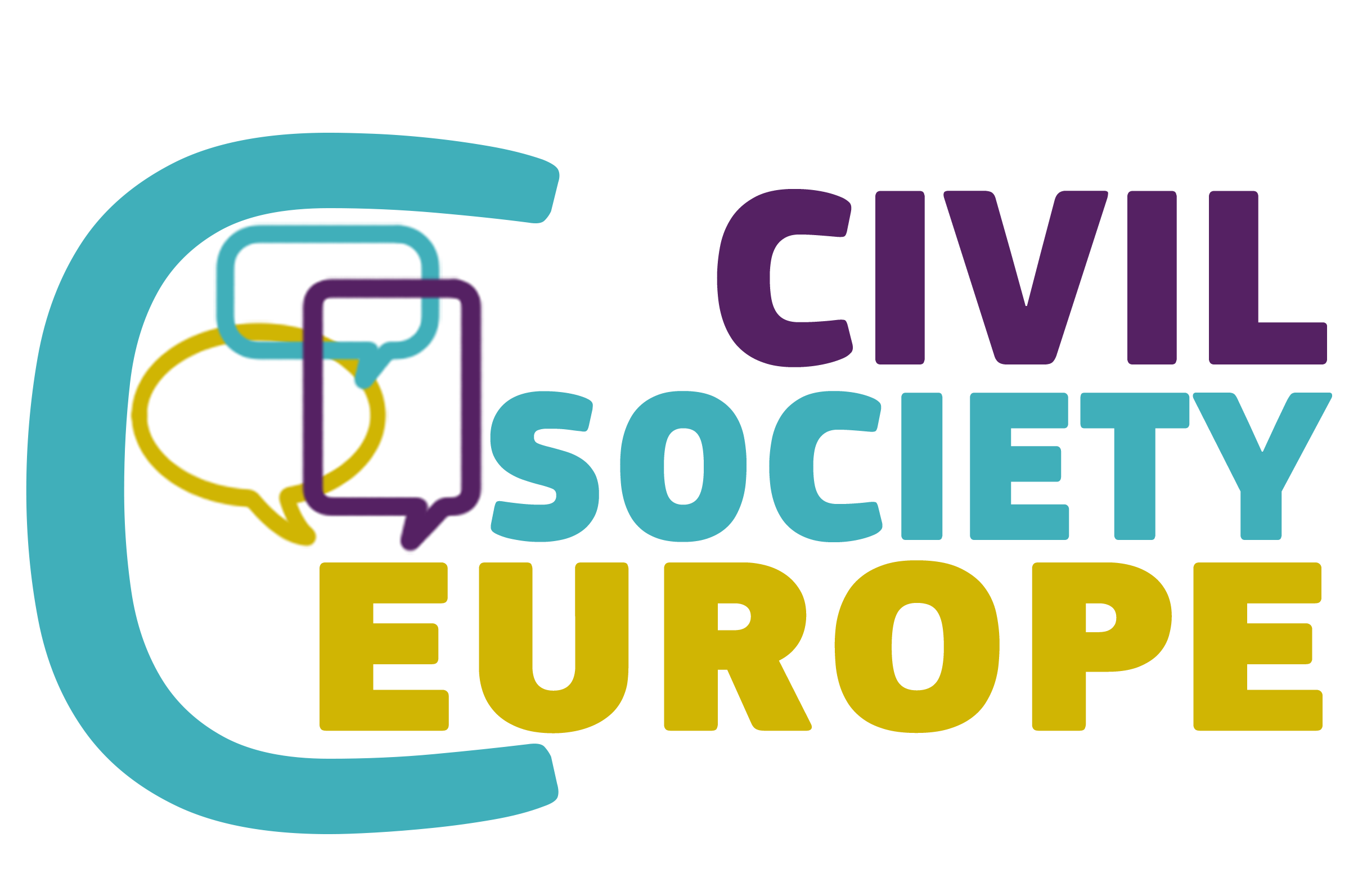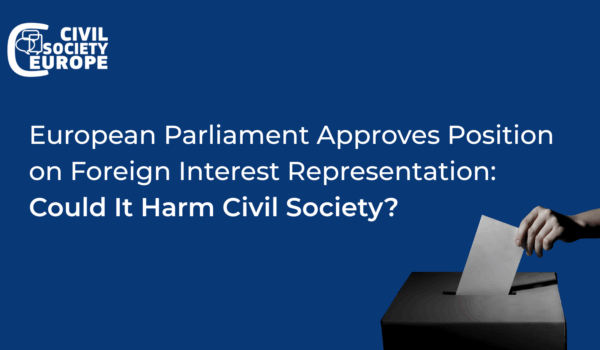Civil Society Europe’s Reaction to the Approval of the Foreign Interest Representation Directive
On Thursday 27th November, the European Parliament approved its position on the Directive on Interest Representation Services on Behalf of Third Countries. The text approved is the same as the one approved in October by the IMCO Committee, as a compromise among the centrist political groups.
As we stated, the text is an improvement compared to the Directive’s original text: it strengthens protections for academic and media freedom, adds a focus on fundamental rights, refocuses the Directive on lobbying services and excludes grants, while sanctions are fair and limited to administrative fines.
However, the following problems remain:
- The compromise clearly states that activities covered by the Directive are based on the definition of services in art. 57 of the Treaty on the Functioning of the European Union. However, the criteria used to identify a service should be further clarified.
- It isn’t clear how effective safeguards will be implemented, including the ban on criminal sanctions. Stricter regulations could be introduced as part of the transposition of the Directive in national law, as suggested by the new article 4.
- The new article 3.2.ba was introduced to protect civil society’s role in public policy making. However, which activities are excluded is unclear. The definition of civil society introduced in the amended proposal. should be more encompassing
- The compromise proposes a new term, ‘third country sponsor’, without specifying its meaning. A definition should be introduced.
We call on the Council to take these concerns in consideration when discussing their own position.
However, we state once again that no further changes will likely fully prevent this Directive being misused or having an undue impact on fundamental rights once implemented. The risk of governments using it to attack civil society still remains large, and the Directive will be ineffective in tackling foreign interference. That is why we still believe that the best decision would be either the withdrawal of the Directive, or a legislation that ensures transparency of all lobbying services (whether funded by non-EU or EU countries), with strong protections for fundamental rights.


